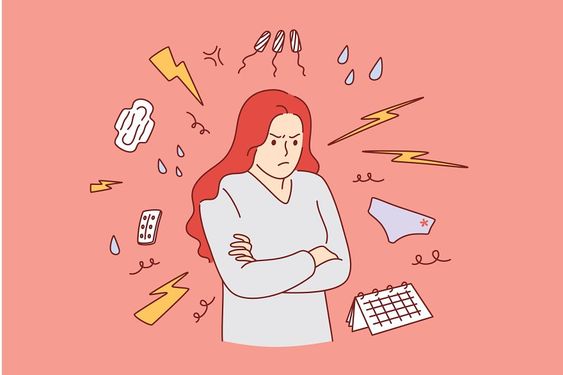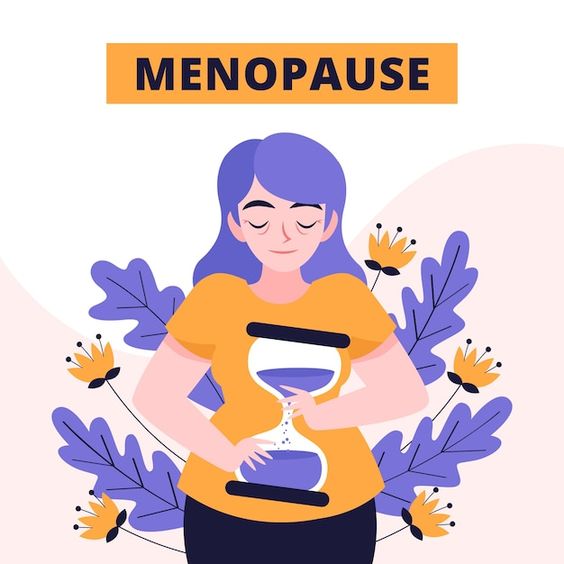It’s easy to ignore hormone dysregulation while coping with mental health disorders like anxiety and depression—yet balanced hormones are essential not only for a healthy body, but also for a healthy mind. Hormones, or molecules produced by endocrine glands, regulate various biological functions. They are in charge of metabolism, mood, reproduction, and sexual wellness.
Hormones have a significant impact on the brain chemistry, mental health, and mood of women. Estrogen, progesterone, and testosterone all play vital roles in the health and emotions of women. When these hormones are out of balance, they might contribute to or aggravate pre-existing mental health problems.
Reproductive hormones and stress hormones can both have negative impacts on mental health. Hormone and progesterone fluctuations might make us irritated and nervous. If left untreated, the stress hormone cortisol can induce severe anxiety and despair.

PMS
PMS is a mix of physical and mental symptoms that begin a week or so before your menstruation. Some people feel more emotional than normal, while others feel bloated and achy.
PMS can also cause depression in the weeks leading up to a period. The specific cause of PMS is unknown, however it is likely connected to hormonal variations that occur during the second part of the menstrual cycle.

Menopause
Tiredness, night sweats, sleeplessness, hot flashes, memory loss, and tension are all physical symptoms of menopause that can make you feel uncomfortable.
Mood changes such as impatience, sorrow, lack of motivation, aggression, issues focusing, tension, difficulty concentrating, and depression are prevalent throughout menopause. These consequences, like chronic premenstrual syndrome (PMS), can induce emotional stress.
If you already have a mental health condition, the impacts of menopause may induce a relapse or change in your mental health.

Pregnancy
Pregnancy alters your body in a variety of ways. Some of the realities of pregnancy include morning sickness, backache, headache, leg cramps, varicose veins, itching, constipation, haemorrhoids, indigestion, and vaginal discharge. Not surprisingly, they can have an impact on how you feel about being pregnant.
Some folks are concerned about what is ahead. Perhaps you did not plan your pregnancy. Perhaps you’re concerned about how a new baby will impact your relationship. Perhaps you’re worried about delivery.
These are all common concerns, and you may experience any or all of them during your pregnancy. However, if these emotions of sorrow, fear, or anxiety begin to interfere with your life, they may indicate something more serious, such as perinatal depression or anxiety.
After giving birth, up to 80% of women report feeling emotional, irritated, excessively sensitive, moody, or stressed (often between day three and day 10 after birth).
Changes in hormone levels are frequently to blame, and these symptoms normally dissipate within a few days. Typically, you do not require therapy, only support and understanding. If these symptoms persist beyond the first few days, they may be an indication of something more serious, such as sadness or anxiety.
Postnatal depression can strike between one month and one year after a woman gives birth. Postpartum depression is a prevalent mental health issue that affects one in every seven women who have given birth.

The IRC, in partnership with the Pakistani government, ensures delivery of health services including prenatal, natal, infant care, family planning, contraceptives, and nutritional counselling in Khyber Pakhtunkhwa. In addition, the IRC has established 10 safe spaces to deliver psychological counselling, awareness and vocational training to those most in need in Swat and Peshawar.









What do you think?
You must be logged in to post a comment.